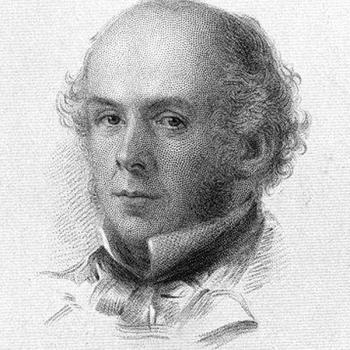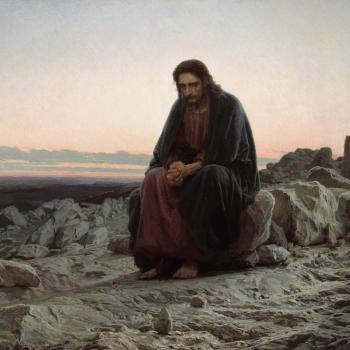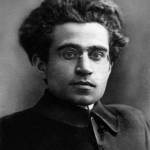I am a fully certified Welsh person. In fact, other products of my hometown of Port Talbot include Richard Burton and Anthony Hopkins, with Rowan Williams and Catherine Zeta-Jones born down the road. We specialize in high drama.
Through the years, I have also published extensively on Welsh history, which offers an interesting case-study in religious narrative. Until recent years, that history was recounted largely in terms that were not just religious but Protestant and evangelical, with an arc that culminated in a kind of millennium. It then stopped, or rather went into reverse, in a way that seriously subverts the older story.
Although I won’t relate that whole history here, it has a number of critical turning points, mainly connected with faith. In 1536, an Act of Union integrated Wales into England for administrative purposes, and aimed at a full integration of culture and language. One major reason that failed was the translation of the Bible into Welsh in 1588, an event that stabilized the language and prevented it degenerating into local dialects.
Even at this stage, though, the Reformation had made little progress. In the south, Protestantism spread through the innovative evangelistic efforts of Anglican leaders like Rhys Prichard, who in the 1630s presented Christian doctrine in the form of popular verses and songs, later collected as The Welshman’s Candle (Cannwyll y Cymry). The Great Awakening burnt fiercely in Wales, spreading Methodism and evangelical faith throughout the country.
From the 1780s, the Sunday School movement led by Thomas Charles of Bala advanced that project still further, to the point of making Wales overwhelmingly a Dissenting or Nonconformist (non-Anglican) nation. To adapt the old joke: “How can you not have heard of Thomas Charles? He is world-famous in Wales.”
Religion became intimately connected with national identity. According to the prevailing myth, the authentic Wales was Dissenting, as opposed to the Anglican church of the landlords and their minions. From the 1860s, Wales became the heartland of a Liberal Party rooted in the chapels, that is in Nonconformist congregations, whose greatest standard bearer was David Lloyd George. That political story even had international dimensions, as the Welsh Nonconformist Liberals who helped run the country during the First World War era had such an instinctive sympathy for the rights of the Jews, another oppressed nation that clung to Biblical truths. Of course they pushed hard for the Balfour Declaration.
The year 1904, meanwhile, brought a kind of apotheosis of the Nonconformist dream, with the national revival associated with Evan Roberts. According to legend still current today, Wales for one shining moment became something like a perfect Christian society, where police and courts almost closed for lack of business. The land was covered with chapels, the country suffused with evangelical values, and the Welsh enforced the Sabbath with Old Testament ferocity. The millennium seemed nigh. Of course, it was too good to be true – look at the brilliant contemporary satires of the greed and narrow-mindedness of Nonconformist Wales by the acerbic Caradoc Evans – but for all those problems, that evangelical society did exist, and that faith shaped values and cultures over decades.
All of which raises the interesting question of where it went. Since the 1950s, Wales has shared the rapid secularization of the rest of Britain, as older churches and chapels have closed at an astonishing rate. Wales today is a graveyard of closed chapels or, more likely, the sites where old buildings once stood.
Barely 70 percent of the Welsh claim any Christian loyalty whatever, and only ten percent report regular attendance at church or chapel, a figure even smaller than in Godless England. Nor has time been kind to the old Nonconformists, the heirs of Thomas Charles and Evan Roberts. By far the largest surviving denominations are the Roman Catholic Church and the free-standing Anglican Church in Wales. The old core Dissenting churches – Independent, Presbyterian and Baptist – each claim around one percent of the population as members. Each, in fact, has about as many followers as the Welsh practitioners of Islam. (Muslims actually have deep roots in the area, with an active mosque in Cardiff by 1860). Nearly 19 percent of the Welsh report no religion at all.
Perhaps the heirs of all those revivals have not vanished into extinction, but they have come close.
The question obviously arises: why should anyone care about this, unless they have a vested interest in the country? For one thing, it has to make us think about the way we tell the story of a society traditionally dominated by religion, particularly in a country where for many years much of the history was written by clergy or teachers with a passionate faith commitment. If we don’t leave Thomas Charles and Evan Roberts out of the story, then at least we treat them in a whole different light. Must Welsh history be inexorably directed to the glorious moments of 1740, 1780, 1904? Should we start treating evangelicalism not as a teleological goal, but as a transient phase? (Welsh history is incidentally a flourishing scholarly field: see for instance its flagship journal, the Welsh History Review).
And what does the story tell us about revivals and awakenings? When we look at something like the 1904 events, and we try to assess impact, surely it is centrally relevant that just a few decades afterwards, evangelical Christianity would be close to disappearing from Wales.
Another, grimmer, thought does come to mind. Had you asked an informed person in 1920, say, to identify the most devoutly Christian portion of the Protestant world, Wales would have been high on the list of their responses. Certainly it would have ranked high on any gauge of evangelical sentiment. By 1970, though, that faith had collapsed, and today it has all but vanished. With that example in mind, is faith safe in any region whatever? Wales without chapels! You might as well imagine Texas or Tennessee without Baptist churches. And that could never happen… right? Just how tightly tied does that American Bible Belt seem?
But for Wales, perhaps, hope may still come from overseas, as old debts are repaid. In the late nineteenth century, the strict Presbyterian Church of Wales sent missionaries to the people of Mizoram, in the northeast of India. The endeavor succeeded richly, and in 2006 the Mizo people began returning the favor, sending two missionaries to help reconvert Wales. In the words of one Mizo churchman, Wales suffered from “a perceived lack of relevance of Christianity to lives based on materialism.” They have their work cut out.















